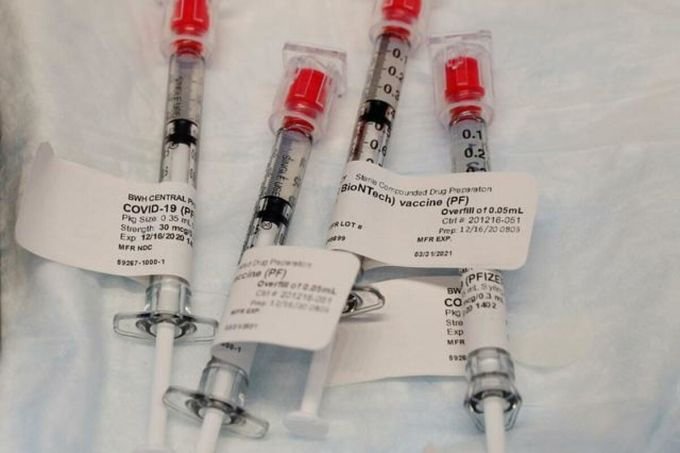
Thousands of doses of Pfizer vaccine were stored too cold 6
General Gustave Perna, vaccine distribution supervisor, said on December 16 that at least two trays of Pfizer-BioNTech’s vaccine (equivalent to about 2,000 doses) stored at minus 80 degrees Celsius need to be replaced.
A vaccination facility in the state of Alabama also discovered a similar problem in two vaccine trays after inspection during transportation.
`The Alabama Department of Public Health confirmed that two trays of Pfizer’s Covid-19 vaccine had storage temperature problems during transportation. We will not provide these vaccine trays to the 15 hospitals designated to organize vaccinations.`
Authorities are working with the US Centers for Disease Control and Prevention (CDC), the US Food and Drug Administration (FDA), and pharmaceutical company Pfizer to investigate the safety risks and effectiveness of the vaccine.
Previously, Pfizer also reported some production problems, US Secretary of Health and Human Services Alex Azar said.
Pfizer has not yet responded to the incident.
Covid-19 vaccinations delivered to Brigham and Women’s Hospital, Boston.
Pfizer initially set a goal of providing 100 million vaccine doses by the end of 2020. However, the number was reduced to 50 million due to `raw material supply issues,` according to Ugur Sahin, chief executive officer of BioNTech.
On November 16, officials revealed plans to distribute 2 million doses of Pfizer’s vaccine next week and 5.9 million doses of Moderna’s vaccine as soon as the FDA approves emergency use, expected on December 19.
Chief advisor of Operation Speed Force, Mr. Moncef Slaoui, said the US government is negotiating with Pfizer about a new batch of vaccine including 100 million doses.
Logistics companies United Parcel Services Inc and FedEx Corp are making contingency plans for vaccine distribution ahead of forecasts of strong snowstorms in some regions.
The minus 70 degrees Celsius storage temperature of the Pfizer vaccine is considered much colder than most conventional drugs and vaccines.
Transporting vaccines in super cold environments to Asian, African or Latin American countries becomes a challenge.
Pfizer has devised a plan to support transportation, storage and continuous temperature monitoring.
To preserve its vaccine, Pfizer created a cold box the size of a suitcase, which can hold from 1,000 to 5,000 doses for 10 days, after which dry ice must be added.



